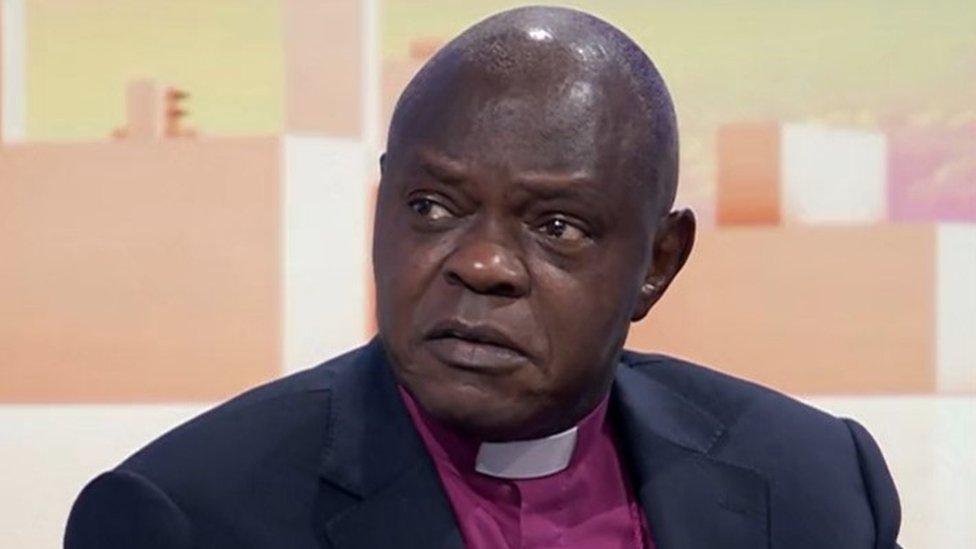Bishop accuses Archbishops of 'coercive language'
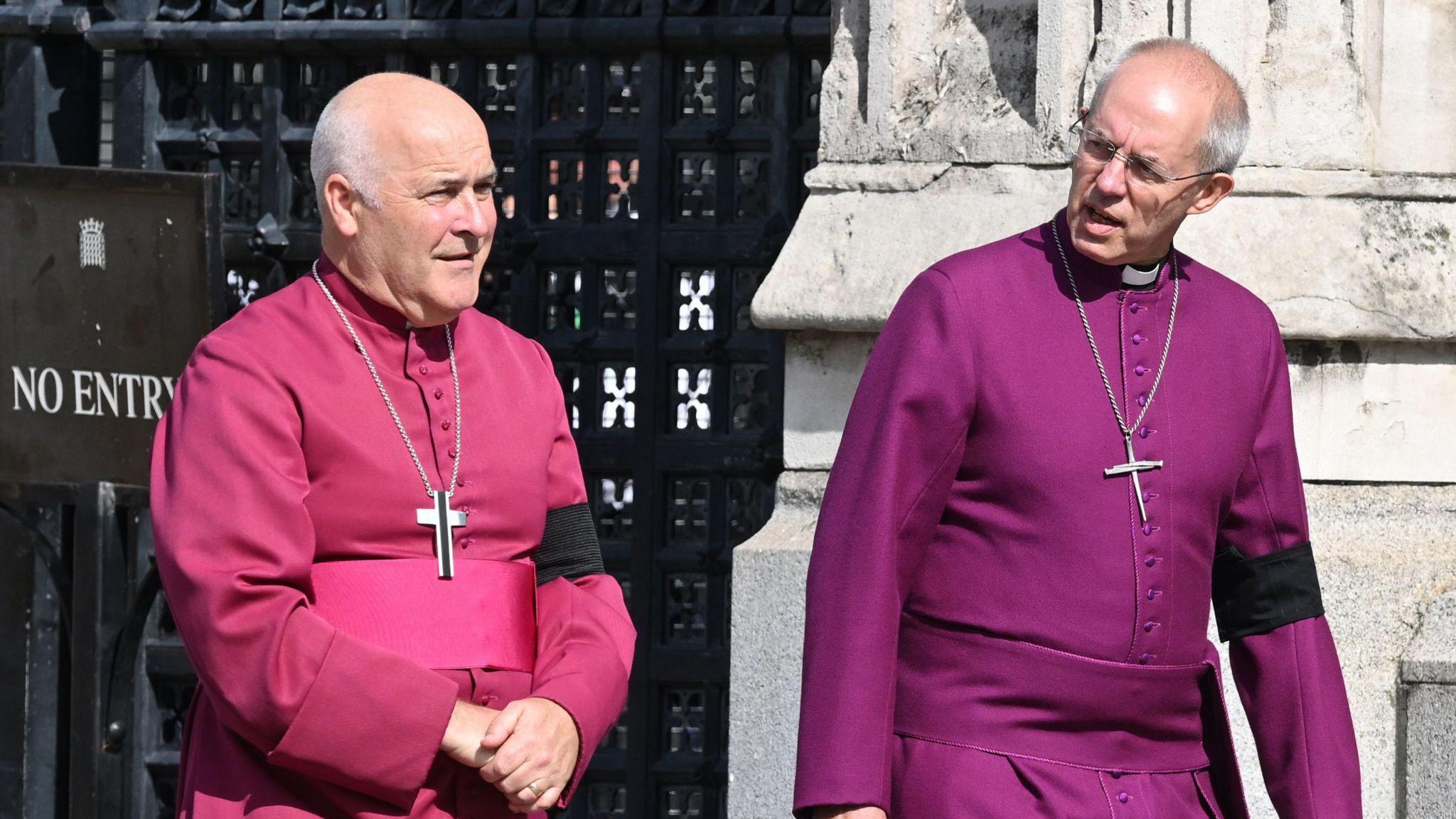
Accusations were levelled at Archbishop of York Stephen Geoffrey Cottrell and The Archbishop of Canterbury Justin Welby
- Published
A bishop has said she experienced "coercive language" from two of the most senior figures in the Church of England.
Bishop of Newcastle Helen-Ann Hartley has published a letter she received from the Archbishop of Canterbury Justin Welby and the Archbishop of York Stephen Cottrell which she said indicated "a complete lack of awareness of how power dynamics operate in the life of the church".
She had previously called on Mr Welby to resign after a damning report into a prolific child abuser associated with the Church.
Mr Welby declined to comment on Bishop Hartley's new statement, and a spokesperson for Mr Cottrell said the letter was not intended to be coercive.
Bishop Hartley's revelations came as Mr Welby faced pressure to resign over a damning report, external by Keith Makin into prolific child abuser John Smyth QC.
He has since announced his intention to step down.
Bishop Hartley said, on 31 October, she received a letter, external from the archbishops relating to Lord John Sentamu's return to the Church of England after a report into how he handled a child sex abuse allegation.
In it, Mr Welby and Mr Cottrell stated: "To be candid, we would very much like to see a resolution to this situation which enables Sentamu to return to ministry."
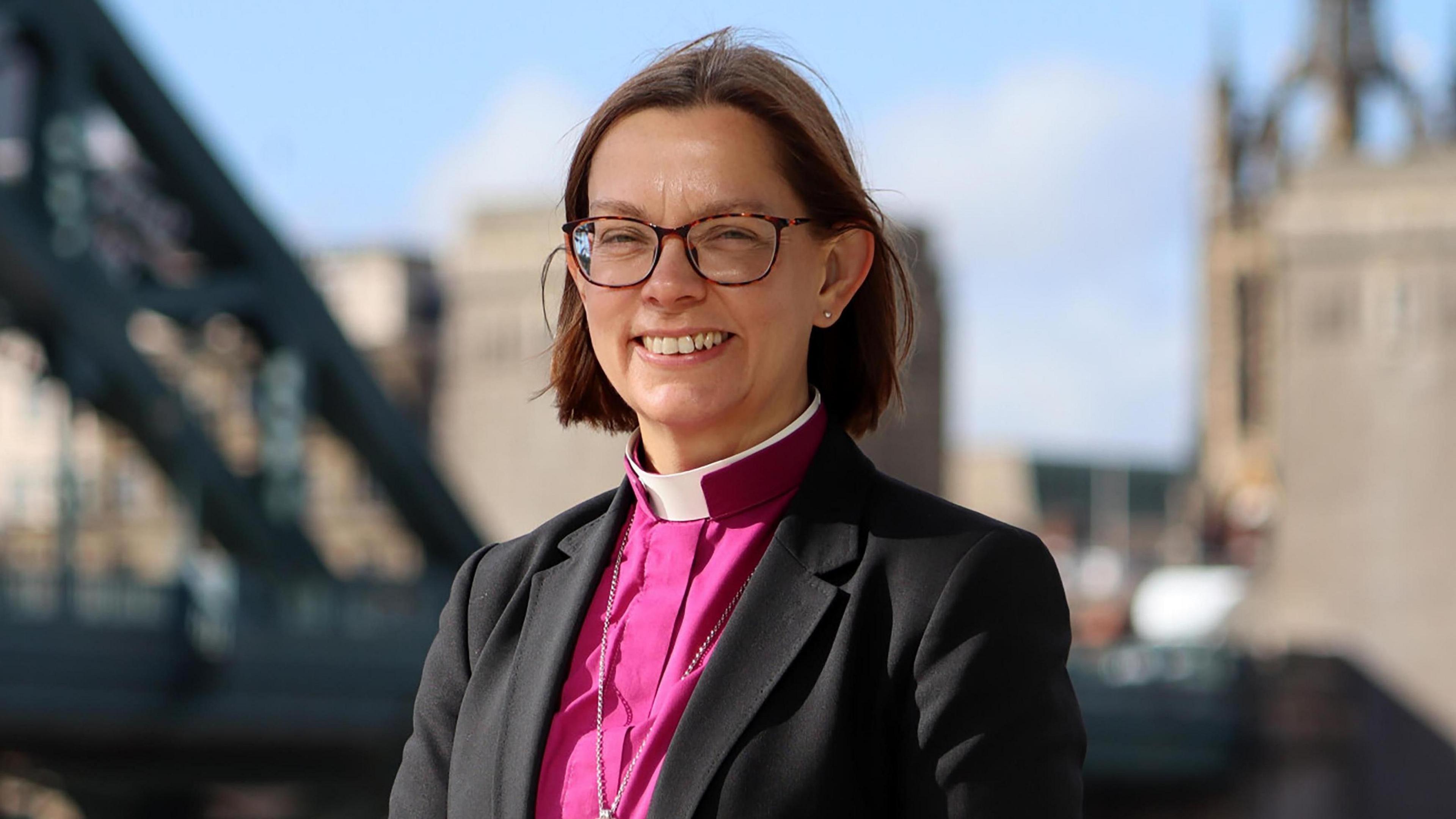
Bishop of Newcastle Helen-Ann Hartley said the decision to publish the letter "had not been taken lightly"
Lord Sentamu, the Former Archbishop of York, had been working as an honorary assistant bishop in the Diocese of Newcastle in 2023 when he was told to step down from the church.
At the time, he rejected the report's findings which said he failed to act on a claim made by a victim.
Bishop Hartley then banned Lord Sentamu from preaching in Newcastle, following his rejection of the report.
He did not respond to requests for a comment at the time.
'Right thing to do'
In a statement, Bishop Hartley said the letter being sent so close to the Makin review signified a "wider and systemic dysfunction of how the hierarchy of The Church of England has dealt with matters of safeguarding".
She said: "The decision to make this letter and its response public has not been taken lightly.
"Quite simply it is the right thing to do.”
A spokesperson for the Archbishop of York said Mr Cottrell was "saddened that this letter is now being described as coercive".
"This was not his intention, nor did he wish to cause any distress to the Bishop of Newcastle."
A statement added that he was "committed to further independence for safeguarding within the Church of England, the independent scrutiny of safeguarding and a much better victim-centred and trauma-informed approach to the culture of safeguarding".
BBC Action Line: If you have been affected by issues in this story, find out what support is available here.
Follow BBC Newcastle on X, external, Facebook, external, Nextdoor, external and Instagram, external. Send your story ideas to northeastandcumbria@bbc.co.uk
- Published12 November 2024
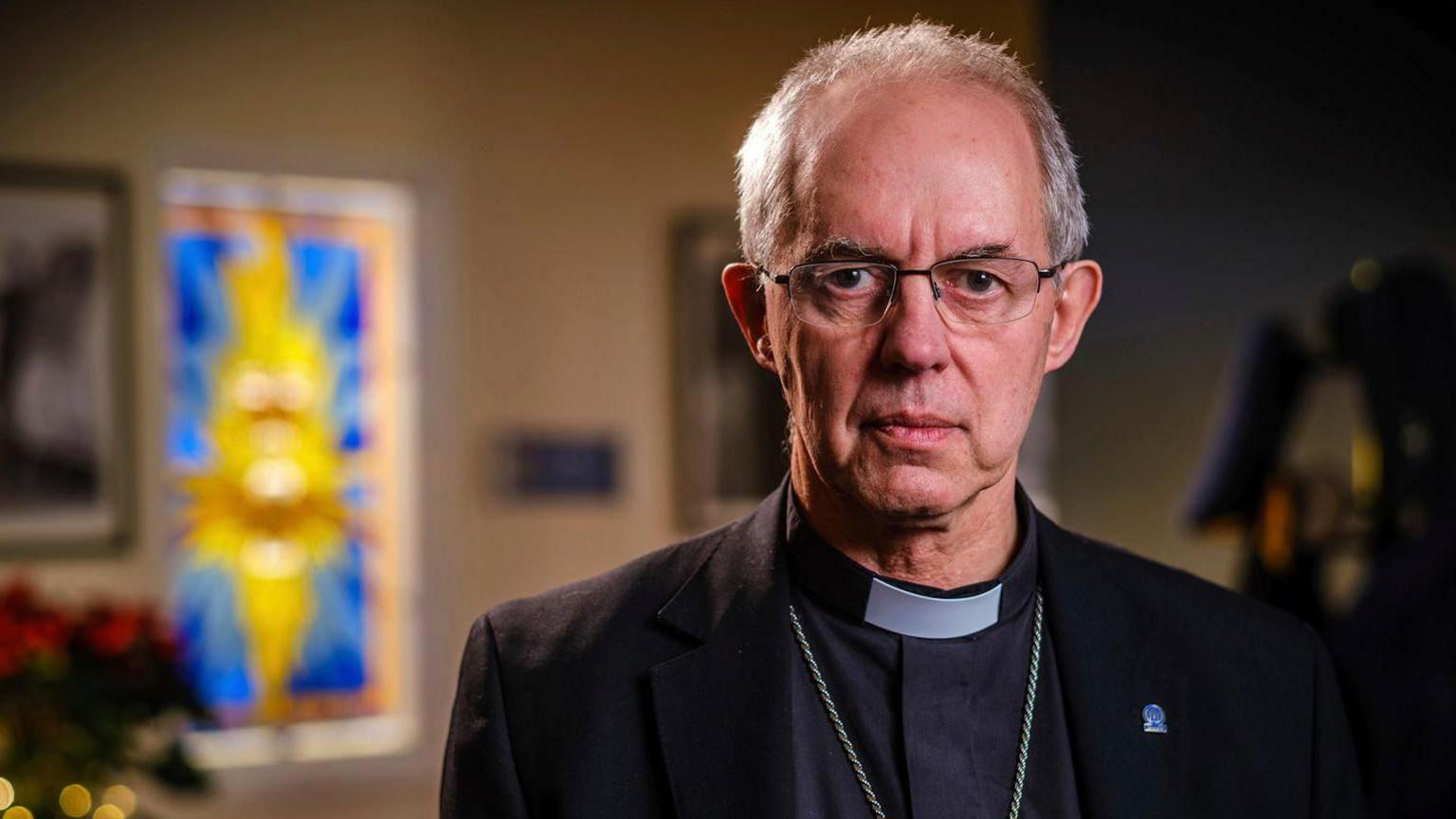
- Published14 May 2023
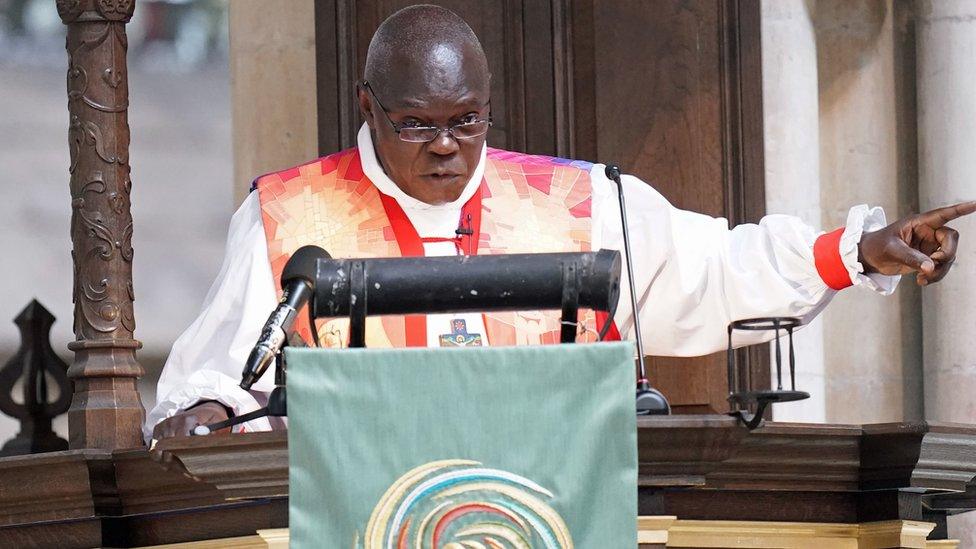
- Published11 May 2023
